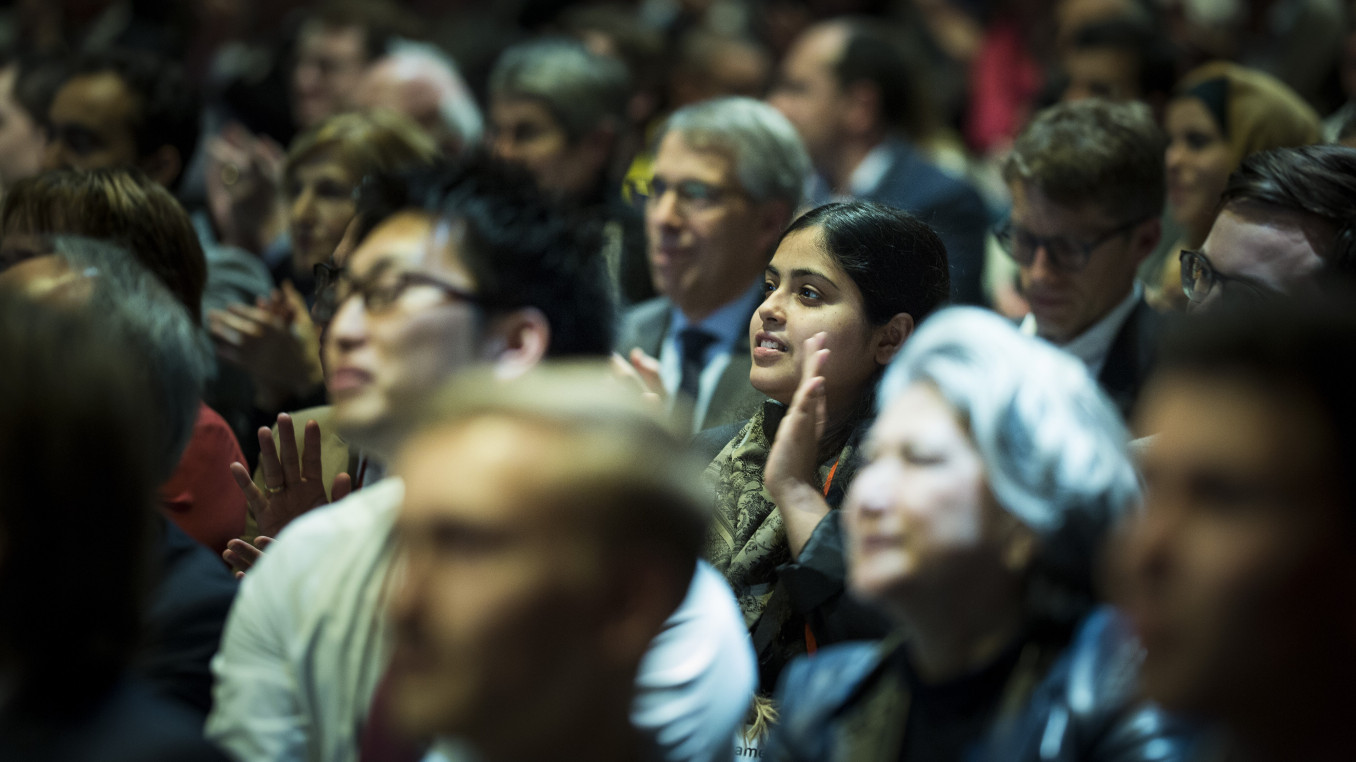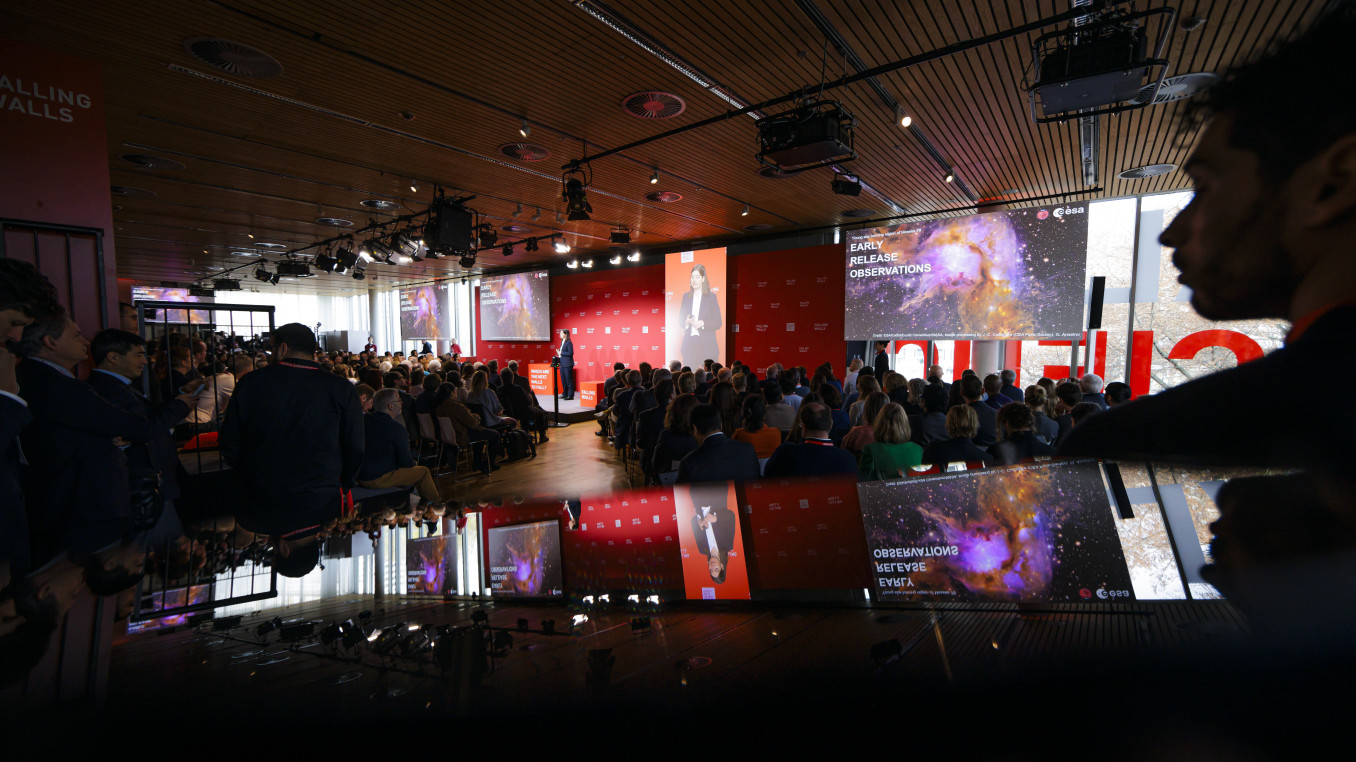Emmanuel Nii-Boye Quarshie's Research on Adolescent Mental Health in Sub-Saharan Africa
Breaking the Wall of Adolescent Mental Health
Winner Interview 2024: Social Sciences and Humanities
Emmanuel Quarshie’s interdisciplinary project is pioneering research on youth self-harm and suicidality in sub-Saharan Africa, focusing on marginalized adolescent groups often excluded from public health studies. By incorporating quantitative surveys and qualitative interviews, his work offers a comprehensive view of adolescent mental health in the region. This research significantly informed the repeal of Ghana’s anti-suicide law in 2023 and aims to support the UN Sustainable Development Goals by providing epidemiological evidence, informing culturally sensitive policies, and developing clinical protocols. Quarshie's efforts are transforming our understanding of adolescent mental health and paving the way for more inclusive and effective interventions.
Which wall does your research or project break?
Across the world, according to the World Health Organization, 1 in 7 young people aged 10-19 years old experiences a mental disorder, accounting for 13% of the global burden of disease in this age group. Besides anxiety, depression, and behavioural disorders as leading causes of disability and illness among adolescents, globally, suicide is the fourth leading cause of death among young people aged 15-29 years. Failure to address adolescent mental health conditions leads to both physical and mental health problems and limit opportunities to lead healthy, fulfilling lives later in adulthood. The inclusion of suicide reduction in the UN Sustainable Development Goals (Goal 3.4.2: to reduce by one third mortality from suicide, by 2030) makes self-harm and suicide prevention research a global priority. However, to date, most of what we know about adolescent mental health comes from studies conducted in Western, Educated, Industrialised, Rich, and Democratic contexts. We know less than enough about adolescent self-harm and suicide in low- and middle-income countries, particularly, those in sub-Saharan Africa, although the rates of suicide in Africa are higher than the global average. Notably also, self-harm and suicide remain highly stigmatised and socio-culturally proscribed in most African countries, with many countries on the continent keeping anti-suicide laws inherited through colonial rule. Thus, to address these challenges, my “Breaking the Wall” project (Breaking the Wall of Adolescent Mental Health) primarily aims to contribute interdisciplinary research evidence on self-harm and suicide in sub-Saharan Africa, not only among in-school adolescents but also out-of-school, marginalised and minoritised adolescent groups who are typically excluded or underrepresented in public (mental) health research.
So far, my individual and collaborative studies have included, for example, street-connected adolescents, pregnant adolescent girls, homeless adolescents, LGBTQ+ adolescents, adolescents in rural communities and those living in (post)conflict contexts, and adolescents with disabilities. The research approach involves cross-sectional, self-report quantitative surveys, and qualitative interviews with young people and key adult stakeholders. The emerging body of evidence from this project provides a comprehensive view on adolescent and young adult self-harm and suicidality in sub-Saharan Africa. It is noteworthy that the body of evidence significantly informed the Private Member’s Bill that led to the repeal of Ghana’s anti-suicide law in March 2023. Looking further afield, my research seeks interdisciplinary exploration of the cultural understandings to inform adolescent self-harm and suicide intervention and prevention in sub-Saharan Africa.
What are the three main goals of your research or project?
My “Breaking the Wall” project (Breaking the Wall of Adolescent Mental Health) adopts multi-ecological frameworks and interdisciplinary models to understand adolescent self-harm and suicide primarily in Ghana but also broadly across sub-Saharan African countries. Generally, this project provides a comprehensive view on adolescent and young adult self-harm and suicide in the sub-Saharan Africa. Three notable goals of the project are:
1) To contribute epidemiological evidence on adolescent self-harm and suicidal behaviours towards the attainment of the UN Sustainable Development Goals (Goal 3.4.2: to reduce by one third mortality from suicide, by 2030) in sub-Saharan Africa. This strand of evidence covers prevalence estimates and risks and protective factors associated with self-harm and suicide among adolescents and young adults in sub-Saharan African countries.
2) To contribute evidence that informs culturally sensitive mental health policies (e.g., national suicide prevention strategies) and preventive translational practices (e.g., setting up of adolescent and young adult-focused crisis helplines). This arm of evidence will inform policy makers and other relevant stakeholder groups and organisations, interventionists and mental health advocates in underserved and resource-poor contexts sub-Saharan Africa.
3) To contribute evidence that informs the development of clinical manuals and interventive protocols to support professionals and non-specialised mental health workers towards adolescent and young adult self-harm and suicide prevention.
What advice would you give to young scientists or students interested in pursuing a career in research, or to your younger self starting in science?
Encouraging young scientists or students interested in pursuing a career in research is critical, as they represent the backbone of tomorrow’s research and the creation of research findings to solving future real-world problems. Besides contributing to honing their problem-solving skills, critical thinking skills and challenging themselves in new, productive ways, young scientists stand a greater chance of exploring their curiosity and learning about how the world functions. To make the most of their research talents, young scientists or students interested in pursuing a career in research should consider volunteering or working on faculty-led/initiated research projects. This affords one the opportunity to work closely with a faculty member or other experienced researcher – who could offer research mentorship. Such research mentor-mentee relationships can yield many benefits to the young researcher: grantsmanship and funding, project management, accountability, ethics, and networking. The world’s recent experience of COVID-19 underscores the importance of scientific research, as it increases human knowledge, promotes innovation, enriches science itself, and contributes to improving the quality of human life and survival. Thus, young scientists’ or students’ involvement in research early in life will enhance the discovery of solutions to the variety of real-world problems and contribute to making life easier through technological innovations. Besides offering a satisfactory earning opportunity and the potential to make cutting-edge research discovery in a range of contexts, industries, and locations, being a researcher enhances one’s desirable scientific traits, including curiosity, creativity, careful observation, logic, objectivity, and skepticism.
What inspired you to be in the profession you are today?
Addressing adolescent mental health issues today contributes to a fulfilling adult life tomorrow.
What impact does your research or project have on society?
My research serves as an avenue for adolescents and young adults to contribute the lived and living experiences to improve mental health literacy in Ghana and sub-Saharan Africa.
What is one surprising fact about your research or project that people might not know?
I have a personal lived experience of youth mental health problems.
What’s the most exciting moment you've experienced over the course of your research or project?
That the body of evidence from my research was a key basis for the repeal of Ghana’s anti-suicide law in 2023.


